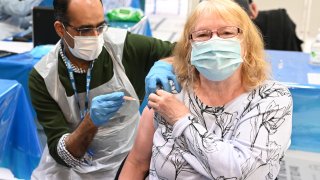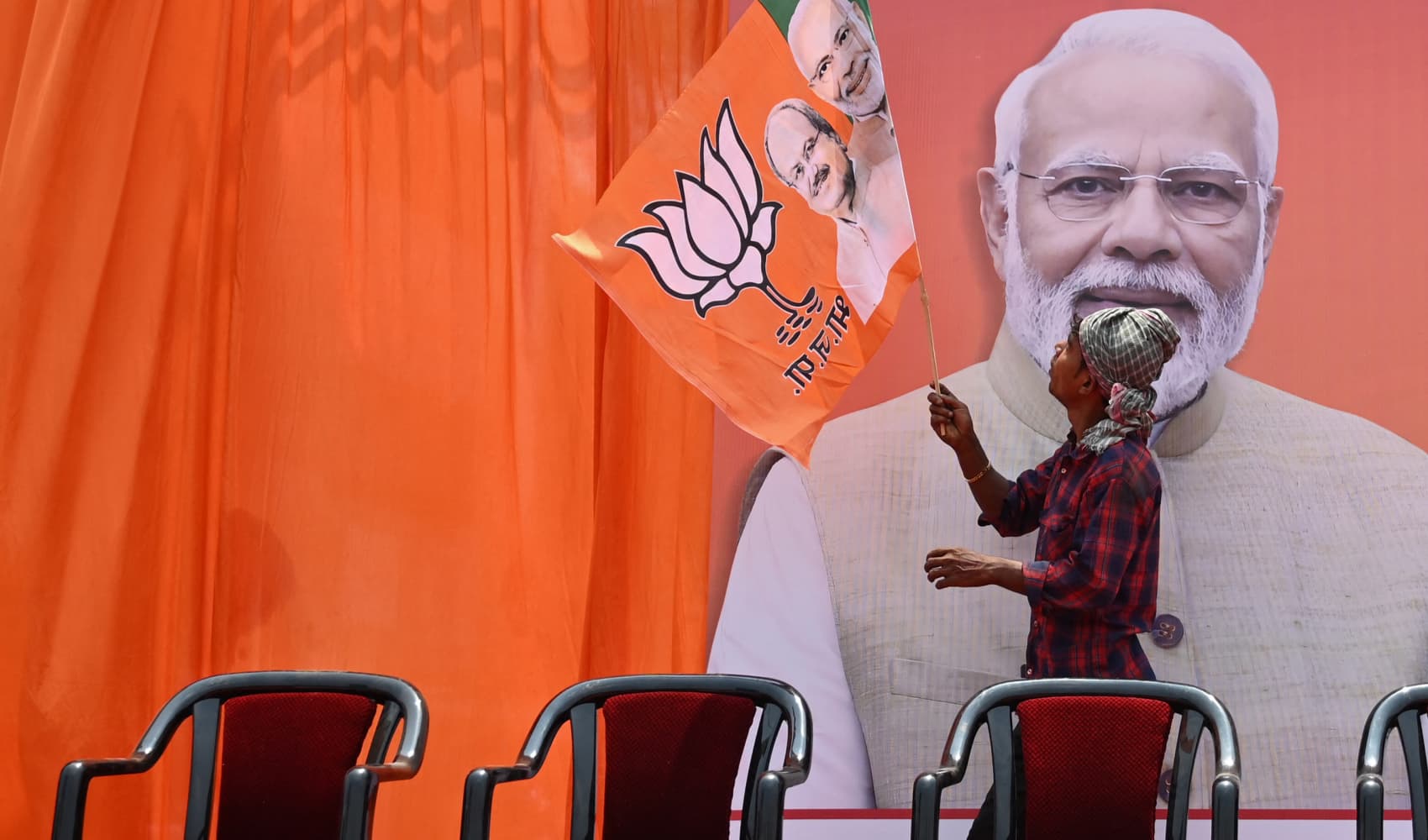
- More than three quarters of people in the U.K. now say they are "very likely" to have a coronavirus vaccine, a survey by the University of Oxford has found, up from 50% among the same group of survey respondents five months ago.
- The study, part of the University of Oxford-funded research project 'Coping with COVID-19', was conducted on a representative sample of over 1,600 U.K. adults using the polling company YouGov.
LONDON — More than three quarters of people in the U.K. now say they are "very likely" to have a coronavirus vaccine, a survey by the University of Oxford has found, up from 50% among the same group of survey respondents five months ago.
The study, part of the University of Oxford-funded research project 'Coping with COVID-19', was conducted on a representative sample of over 1,600 U.K. adults using the polling company YouGov.
It found that the percentage of people who are "likely" or "very likely" to take the vaccine has increased to 87% from 78% since the sampling of respondents last October.
Get Connecticut local news, weather forecasts and entertainment stories to your inbox. Sign up for NBC Connecticut newsletters.
It found that age remains a strong predictor of willingness to take the vaccine with the 50-59 age group now much more positive about the vaccine since October.
There is a group of around 7% of the population who remain "very unlikely" to take the vaccine and this has not shifted greatly, the study said.
The survey of 1,200 UK residents, contacted in early October 2020 and again in the first week of February 2021, showed strong relationships between political attitudes and the intention to accept the vaccine, however, and that important gaps remain, driven by income and ethnicity.
Money Report
Co-authored by scholars from the University of Oxford, London School of Economics, and University College London, the study found that people on lower incomes are, on average, much less willing to take the vaccine. It also found that ethnic minority participants' opinion of the vaccine had edged slightly in favor of the shot, but still trailed the white population represented in the survey.
The U.K.'s vaccination rollout began in December, with priority given to the elderly, care home residents and staff, and health care workers. The nationwide vaccination program has been seen as a success so far, with the rollout now extending to more priority groups in younger age brackets, and those deemed clinically vulnerable. As of Monday, almost 18 million people have received their first dose of a coronavirus vaccine.
Government officials have expressed concern over vaccine hesitancy among some key groups, however, including care home workers and some ethnic minorities.
Barriers to vaccine uptake can include a perception of risk, low confidence in the vaccine, distrust in the medical establishment and a lack of endorsement or communication from trusted providers and community leaders, the government said in a recent report. It has sought to tackle vaccine hesitancy by engaging faith leaders and local medical practitioners that can easily engage with their local communities and encourage vaccine take-up.
However, one's political persuasion was found to affect vaccine acceptance too, according to the Oxford study, including whether respondents voted for Brexit or not. The study found "Remainers," those who voted for the U.K. to stay in the EU, are 7 percentage points more likely to be willing to take the vaccine than "Leavers," or those who did not vote in the 2016 referendum.
People who voted for the Brexit party or Green in 2019 — and especially those who did not vote at all — were found to be the least willing to take the vaccine, with supporters of the Scottish National Party and Liberal voters most positively inclined.
Much is riding on vaccine rollouts in the U.K. and beyond. The U.K. government has recently set out a four-step plan to lift a national lockdown in England over the coming weeks and months, but has said it would rely on data rather than dates in determining how and when it lifts restrictions. How quickly it can re-open public life will affect how quickly its economy, which contracted almost 10% in 2020, can bounce back.
Ben Ansell, professor of Comparative Democratic Institutions at the Department of Politics and International Relations at Oxford University, said the findings showed "important gaps remain especially among groups whose trust in politicians is typically lower: non-voters, younger citizens, and poorer households."
"When so much of the U.K. Government's lockdown exit strategy rests on successful vaccine roll out, these insights will be of immediate importance to policymakers in both their internal deliberation on policy and their outward facing communication with the public."
The Economist Intelligence Unit has forecast that, if vaccine rollouts proceed as it currently expects, most developed countries should have immunized 60-70% of their population by mid-2022. It believes the economic impact of vaccination rollouts should emerge sooner, however, with a global economic recovery to pick up pace from mid‑2021.






